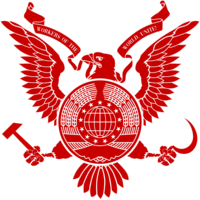Foreign relations of Meridia: Difference between revisions
Jump to navigation
Jump to search
Timur Khan (talk | contribs) No edit summary |
Timur Khan (talk | contribs) No edit summary |
||
| Line 45: | Line 45: | ||
| bgcolor=#ACE1AF|Yes | | bgcolor=#ACE1AF|Yes | ||
| bgcolor=#F59090|Yes | | bgcolor=#F59090|Yes | ||
| | | Terrence Sanders | ||
| [Country Ambassador] | | [Country Ambassador] | ||
| - | | - | ||
Revision as of 14:42, 24 April 2019
| Country | Status | Current state of relations | Mutual Embassies | Visa Requirement | Meridian Ambassador | Nation's Ambassador to Meridia | |
|---|---|---|---|---|---|---|---|
| Template:Country data Basel-Triesen | Neutral | [relationship description] | Yes | Yes | [Meridian Ambassador] | [Country Ambassador] | |
| Neutral | [relationship description] | Yes | Yes | [Meridian Ambassador] | [Country Ambassador] | ||
| Template:Country data Gaulan | Neutral | [relationship description] | Yes | Yes | [Meridian Ambassador] | [Country Ambassador] | |
| Neutral | [relationship description] | Yes | Yes | [Meridian Ambassador] | [Country Ambassador] | ||
| Template:Country data Sepharad | Poor | Meridia and Sepharad were originally allies due to the latter's support of the Meridian International during the Meridian Civil War and the Second Revolution. When Sam Hudson died in 1953, Meridia transitioned from a De Leonist planned economy to market socialism, resulting in an ideological rift that led to the 1955 Meridian-Sepharad split. Since then, the two countries have spent the remainder of the 20th and 21st centuries competing for influence over the world's socialist and countries. | Yes | Yes | Terrence Sanders | [Country Ambassador] | - |
